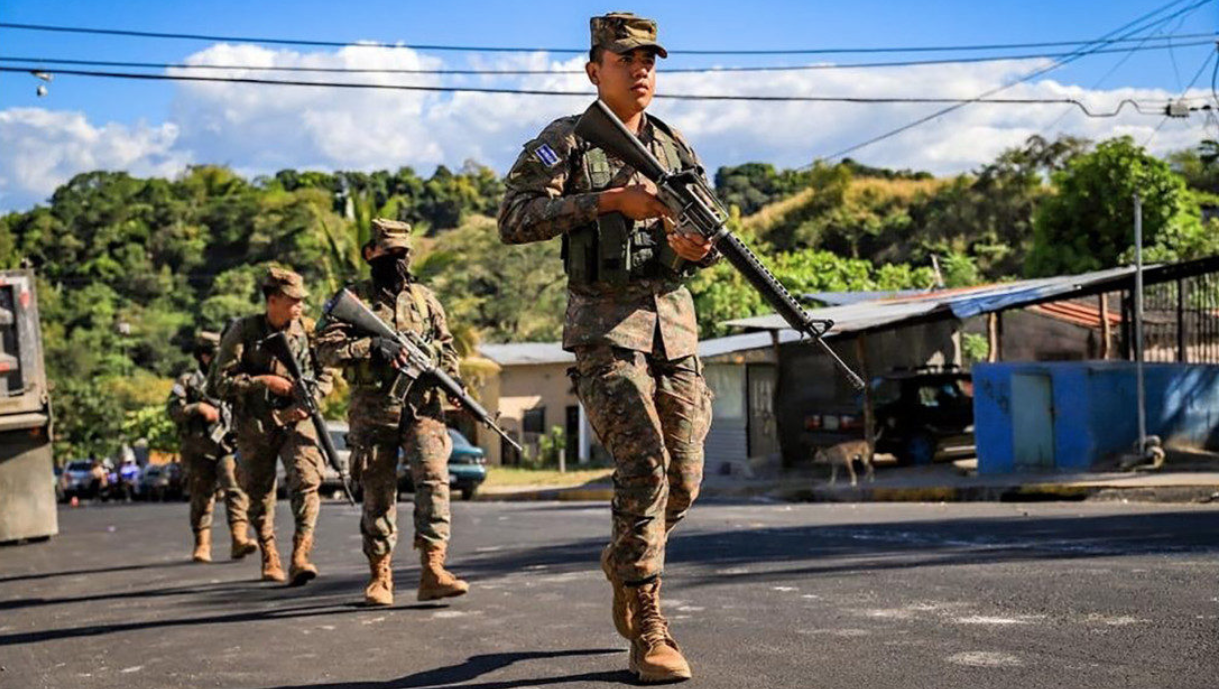In May, the president of El Salvador, Nayib Bukele, in a meeting with mayors assured that Soyapango was the safest municipality in the country, even safer than Costa Rica, the country in the region with the lowest crime rates. However, a few months later, last Saturday, December 3, the Salvadoran president announced that Soyapango was totally surrounded by military and National Civil Police (PNC) troops, due to the high presence of gang members and the rise in crime.
Militarization or siege?
Bukele announced in declarations that “8,500 soldiers and 1,500 agents have surrounded the city, while the police and army extraction teams are responsible for removing one by one all the gang members who are still there”. According to official spokespersons, it was not a militarization of the municipality, but a siege to prevent the escape of criminals still present. Since the beginning of the operation, groups of between 10 and 20 soldiers and police have been seen roaming the streets of the municipality asking for documentation from passers-by, arresting those they consider suspicious, mainly youths.
Soyapango, with a population of 258,000 people, is one of the most populated municipalities in the country, according to official figures from a couple of years ago, and a center of intense economic and industrial activity. Therefore, the operations are also affecting the normal flow of commerce and the economy.
According to Bukele, this is the fifth phase of the government’s Territorial Control Plan, announced last November. This phase would consist of capturing gang members and other criminals hiding in places that, until now, were considered safe for gang members. A spokesman for the Defense Cabinet indicated that the intervention forces have lists with the names of the criminals who take refuge in Soyapango, for which reason the search is being carried out in a personalized manner.
Staging
For the numerous opponents of the government, this showy display is a new staging of the president, very adept at the coups d’effect which, although they attract attention, do not guarantee an improvement in the situation of insecurity in which a great part of the Salvadoran population lives.
According to the opposition, these coups would have as a covert objective the recovery of the president’s popularity, which is weakened among the citizens. Although for the – very little credible – pollster CID-Gallup, Bukele is the politician with the highest level of acceptance in Latin America, the truth is that, from the very high indexes he had at the beginning of his administration, he now reaches 58%, according to figures collected by other pollsters. While this is a high level of approval, support is persistently declining, according to the same sources.
But in spite of the contradictory nature of the measures, taking into account the official declarations of the president, some of his ministers, and the mayor of that municipality, Nercy Montano, who assured that her municipality was the safest in all Central America, the Minister of Defense, Rene Francis Merino Monroy, assured on Monday, December 5, that this strategy of military fences will be used in other municipalities of the country.
In view of these new announcements, and as it usually happens with every controversial decision made by Bukele, criticisms immediately arose from different sectors of the opposition who consider that this is not only a measure with little chance of success but also violates the human rights of the majority of the citizenry.
The Farabundo Martí National Liberation Front (FMLN) has criticized the measure for violating the regulations on citizen security established in the Peace Accords. The same has been expressed by leaders of other opposition groups such as the Vamos Party, which has pointed to Bukele as an authoritarian leader and compared him to Daniel Ortega of Nicaragua.
In response to the criticism, the Minister of Defense assured that “there are no complications for the honest population”, and that the degree of error is zero. However, the residents of Soyapango have not been consulted about the measures applied.
But it is not only the political opposition that has been critical, but also the police forces themselves. The Police Workers Movement (MTP), a kind of union, has made its complaints known to the Government and to the media, and has indicated that the welfare of the police officers participating in the siege is not being taken into account. According to them, the policemen, after the intense night patrols, have to sleep on the floor and lack proper food and basic personal hygiene conditions.
Despite numerous criticisms of the government’s security policy, Bukele is not likely to reverse this phase of the Territorial Control Plan. The president never retraces his steps and always finds a way out of trouble. When things are not going well, he appeals to lies, which, however, fewer and fewer citizens believe.
*Translated from Spanish by Janaína Ruviaro da Silva











